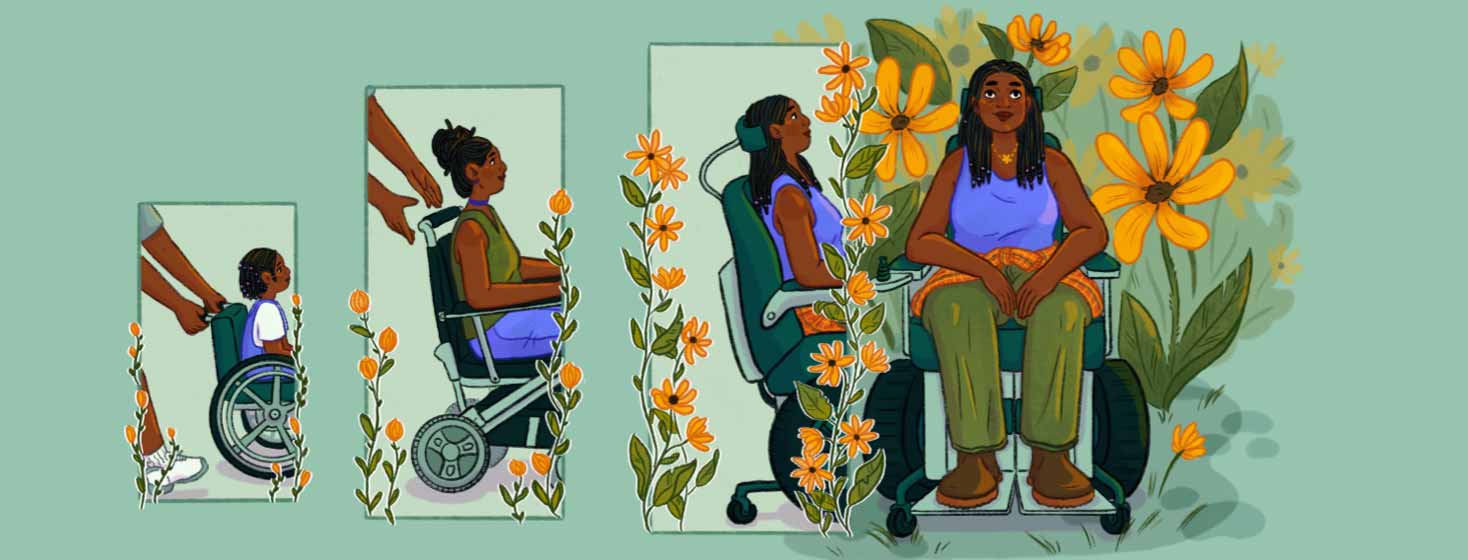Transitioning From Pediatric to Adult Care With a Rare Disease
Young people living with a rare disease are living longer than ever. That’s the good news. The less-good news is that not many places exist for teens and caregivers to get help transitioning to adult care.1
Another issue is that it takes time to successfully transition. This multi-year process should be gradual to give the young person and their caregivers time to learn and adjust to a new normal.1
Ideally, the young person’s pediatric care team and adult care team also participate in this process. However, a national survey found that fewer than 1 in 5 children with a rare disease received any transition support.1
The many challenges of transitioning from pediatric to adult care include:1
- The complexity of care needed for many rare diseases
- Adult doctors' lack of training in, knowledge of, or experience treating conditions considered childhood diseases
- Conflicting recommendations among specialists
- Lack of insurance coverage for transition services
- Lack of a support network for patients, their caregivers, or their pediatric and adult doctors
Medical transition may not be possible at all for teens with severe cognitive or physical limitations.1
This or That
Did you or someone you care for transition from pediatric to adult care?
Elements of a successful transition
Transitioning to adult care is more than a transfer of records from one doctor’s office to another. It should be a learning process that prepares the young person to be independent. To successfully care for themselves, they need to:1
- Understand their own health condition
- Know their treatment history
- Learn to talk to their health team about their condition, medical history, symptoms, and treatments
- Become responsible for renewing prescriptions as well as making and keeping appointments
- Recognize the signs of worsening symptoms and when to seek medical attention
- Learn to advocate for themselves with their healthcare team, school, and workplace
- Adjust to the less supportive environment common in adult care settings
When to begin the transition
Parents may be surprised to learn how early the transition to adult care can begin. Depending on the child and their condition, children may begin to take on self-care responsibilities as young as 6 years old.2
For example, a child between the ages of 6 and 9 may be ready to learn the basics of their disease and any foods they should avoid. They can learn to wash their hands or go get their medicines when it is time.2
By ages 12 to 14, children should begin answering questions from their doctor with the parent in the room. Around age 14, parents may be asked to leave the room during exams.2,3
At age 16, the child may begin tracking and refilling their own prescriptions. They may make doctor appointments as well. Both should be done while a caregiver supports them. By 17 to 18, they should begin learning about insurance options and how they work.3
The goal is that by age 18, when they become a legal adult, they have the skills and knowledge to transition to adult care. Between 18 and 21, they may need to apply for Supplemental Security Income with the Social Security Administration. Older teens will also need to plan for future school, work, and living arrangements.3
Tools to help make transition easier
Coordination between a young person’s pediatric and adult doctors is key to a smooth transition. This cooperation is most effective when doctors are part of a formal transition program with defined steps for the person to take.1
Some tips to keep in mind about transition:4
- Transition is a multi-year process, not a single event.
- The process should begin as early as possible.
- Teens, caregivers, and doctors should discuss and plan the transition as a team.
- It is best to avoid transitioning during a medical crisis.
Featured Forum
View all responsesChallenges of transitioning to adult care
The main challenge is that few formal transition programs exist. This leaves teens and their caregivers to carry the burden of coordinating care.1
Resources that can help with the transition to adult care include:
Disease-specific foundations and children’s hospitals may offer support for teens transitioning to adult care. Foundations may also host peer-to-peer support. Knowing someone else going through similar things can be very valuable in helping young people feel less alone.1

Join the conversation